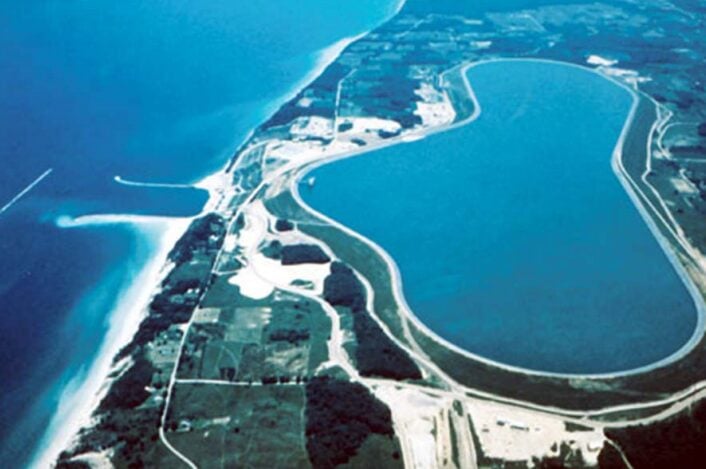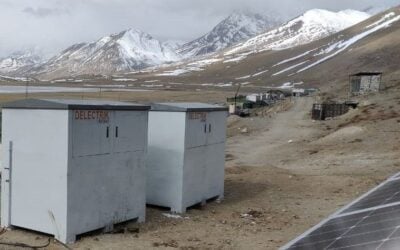
US utilities Consumers Energy and DTE Energy’s case against contractor Toshiba American Energy Systems (TAES) over allegedly ‘defective’ work on a pumped hydro energy storage (PHES) plant will go to court in October.
Consumers Energy and Detroit Edison (now known as DTE Energy) appointed TAES to overhaul the 1,875MW Ludington Pumped Storage Plant 15 years ago.
Under a contract guaranteed by TAES’ parent company, Toshiba Group, the work would have restored the plant to “as nearly and as new condition as possible,” to require no more than “minimal routine maintenance” over a lifetime extended for another 30 years.
Ludington opened in 1973 and featured six 312MW pump turbines. According to a 2011 Toshiba announcement, the refurbishment was planned to boost the output of each unit by up to 50MW. The company said the contract was worth about US$500 million.
Try Premium for just $1
- Full premium access for the first month at only $1
- Converts to an annual rate after 30 days unless cancelled
- Cancel anytime during the trial period
Premium Benefits
- Expert industry analysis and interviews
- Digital access to PV Tech Power journal
- Exclusive event discounts
Or get the full Premium subscription right away
Or continue reading this article for free
After several years of work, which began in 2015, the two utilities alleged that defects began to be discovered in 2019, eventually resulting in operational issues that meant some units can now only run for about 50 hours a year.
The utilities alleged in a case brought in 2022 that work was “defective in multiple respects”. Court documents highlighted the plaintiffs’ view that a protective stainless-steel overlay was removed from discharge rings, which form the pressure boundary to hold water inside each turbine unit, causing damage.
Other allegations stated that unsuitable materials and construction techniques were selected for parts of the upgrade work, which caused cracking.
According to the documents, TAES was asked to make repairs repeatedly in 2021 and 2022, but the contractor only attempted temporary measures, which did not remedy the defects.
The utilities filed their action in 2022, hiring another contractor, Voith Hydro, to assess the work and create a repair plan. They are now seeking more than US$800 million in damages and prejudgment interest.
The parties are now arguing whether the matter should be settled by a jury trial, with the utilities seeking one and Toshiba arguing against it. On 6 August, Judge F. Kay Behm ruled in the US District Court for the Eastern District of Michigan, Southern Division, against Toshiba’s interlocutory appeal to prevent trial by jury.
The case, details of which can be found here, now goes to trial in late October. Lawyer John Mark Goodman, of Bradley Arant Boult Cummings LLP, noted in a post on legal blog JD Supra that the court did rule in Toshiba’s favour in limiting total liability to the price of the works contract.





